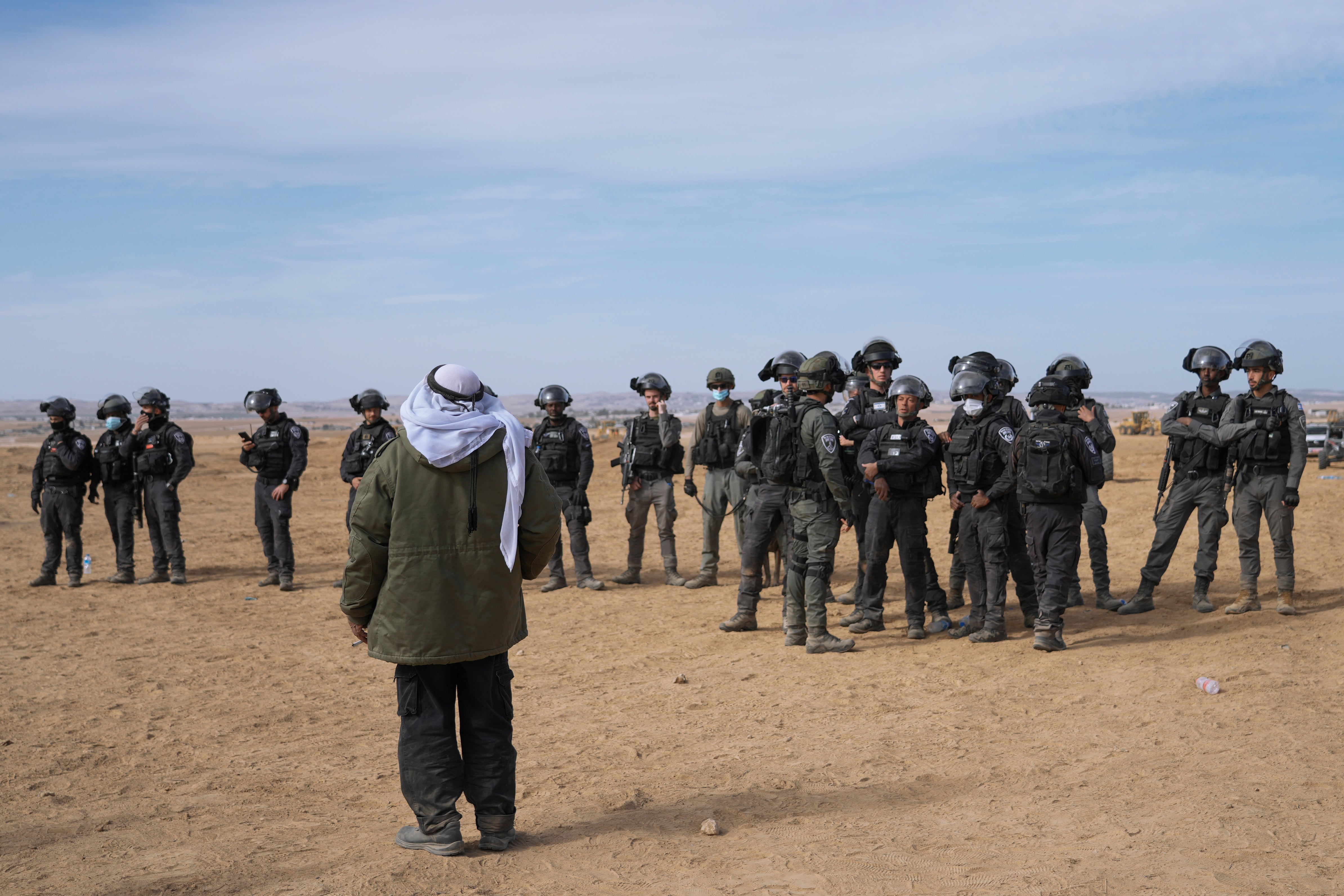Israel moves to resolve crisis after Bedouins protest
Israel’s fragile governing coalition has moved to resolve a crisis over tree-planting on disputed land in the Negev desert

Israel’s fragile governing coalition moved to resolve a crisis on Wednesday after Arab Bedouin staged protests against tree-planting by nationalists on disputed land in the Negev desert.
Some protesters on Tuesday evening hurled stones at vehicles on a highway near Beersheba blocked the railway line and torched a vehicle. Police said two officers were wounded in the violence and local media reported at least 18 people arrested.
The government announced a compromise in which it would complete the day's planting and launch negotiations on Thursday. Authorities withdrew heavy machinery from the area as the tensions appeared to ease.
The Bedouin view the forestry project as part of a larger attempt by authorities to confiscate grazing lands and force them into planned communities, a perceived assault on their traditional lifestyle. Israel says they need to move into planned towns so it can provide public services.
The latest flare-up of the dispute, which goes back decades, risks dividing Israel's fragile coalition government, the first to include an Arab party whose main base of support is in the Negev.
Foreign Minister Yair Lapid had called for halting the planting and reassessing the situation while the Islamist Ra’am party had threatened to withhold its votes in parliament in protest. Both are members of the fragile eight-party coalition that runs the government.
Ra’am, the Islamist party, secured four seats in the 120-member Knesset, Israel’s parliament, in last year’s elections, with strong support among Bedouin citizens of Israel. Party leader Mansour Abbas wrote on Twitter that “a tree is not more important than a person.”
More hawkish members of the diverse governing coalition had pledged to press on, undeterred. Regavim, a nationalist group that is opposed to normalizing the status of Bedouin villages, accused the government of capitulating to “political pressure, strongarm tactics and violence.”
Prime Minister Naftali Bennett heads an unwieldy coalition of eight parties that joined forces in June to form a government and end Israel’s protracted political deadlock. They range from the small Islamist and liberal parties to ultranationalists, and were united only in their opposition to longtime leader Benjamin Netanyahu.
The Bedouin are part of Israel's Arab minority, which makes up some 20% of the country's population. They have citizenship, including the right to vote, but face discrimination. Arab citizens of Israel have close family ties to the Palestinians and largely identify with their cause.
Bookmark popover
Removed from bookmarks